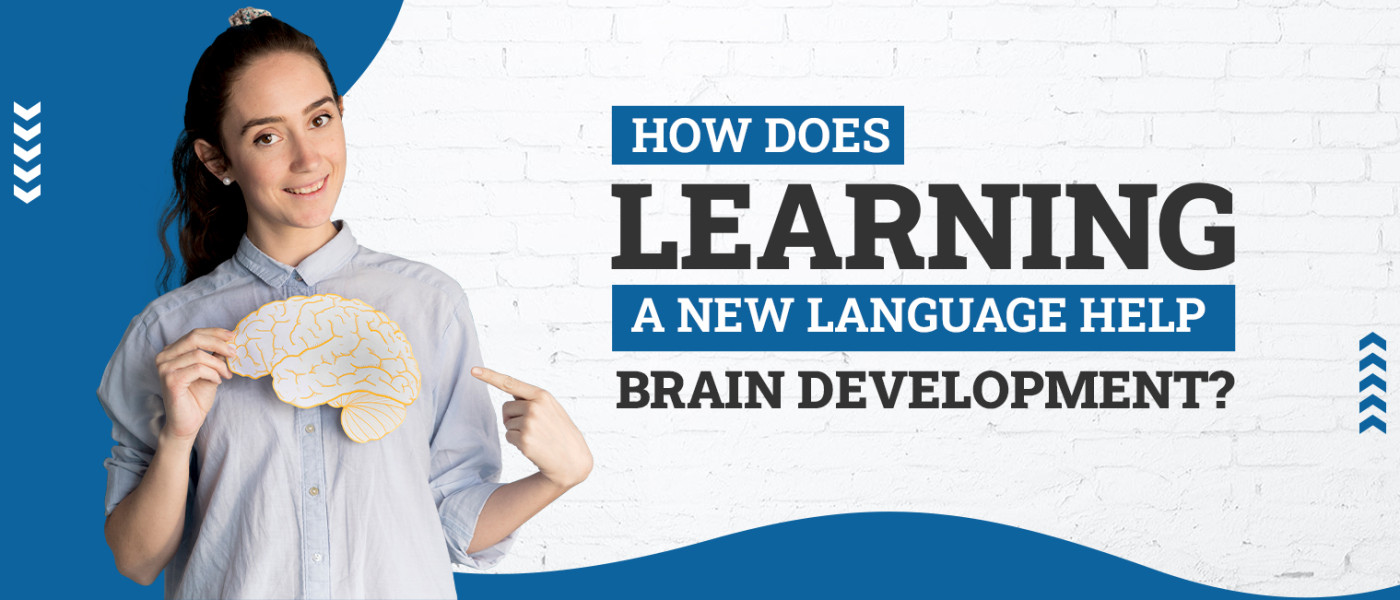Over 100,000 Student and 2500 Tutors join us every month

'Languages are the window for the closed doors of connectivity'
We all know that language is the center of brain development and the gateway to different cultures. The knowledge of many languages enhances confidence, improves communication skills, and outcasts discipline. Traits like thinking power and decision-making also improve. According to Dr. Thomas Bak, children who are bilingual have impressive concentration abilities and are not distraction-driven. They tend to perform better than expected.
But what if brain development is mentioned here? Yes, learning new languages can benefit your brain. Language is the center of the brain and the second language stabilizes brain functioning and the ability to focus. Benefits to the brain can be expressed as -
Executive functioning- It allows us to direct and control plans. Language mastery enables a language to activate subconsciously so that an individual can put up the correct word at the correct time.
It increases the gray matter volume of the brain. Gray matter refers to the totality of the cell bodies and dendrites of the neurons (the brain cell). Bilingualism makes these particles dense and gives an indication of a healthy brain.
Being bilingual affects the white matter of the brain. It's a fatty substance that covers the axon of the neurons. It allows the transfer of the message in the nerve network of the brain.
As our brain is the primary organ for decision-making, lingual understanding contributes to better coordination. The tasks might have nothing to do with language but it keeps your mind distracted from the noisy environment.
Teaching language at an early age: A good or a bad decision?
Various studies have shown that the bilingualism of a child has helped with mental retardation and cognitive benefits. It has benefited in better metalinguistic progress. There have been myths that children who know two languages perform poorly in exams as they get confused. However proper research and analysis have put an end to such rumors.
Such a study is from Sweden. The two groups performed studying languages and intensive non-linguistic subjects respectively. With the MRI tests, it came out that the group that has studied many languages has a bigger-sized brain compared to the other group. John Martensson said that even if one cannot compete with the months of subjective learning with a lifetime learning of being bilingual, this gives an indication that languages are a good way to keep proper functioning of the brain.
There is a fact that a bilingual person's brain ages differently than that of a monolingual. With your opinion, you might think that bilinguals become forgetful due to more word storage but a person with two or more languages has an alternative brain network at the time of the destruction of the original pathway. It also prevents the problem of Alzheimer's.
Thus the learning languages by an individual should be started from an early age because the more the languages the more the eligibility. So keep learning a new language as it will not only benefit you in your career and academics but will also improve your mental health.
Copyright © OTOO Inc 2025. All rights are reserved